Nose Surgery in Hungary
Search and Compare the Best Clinics and Doctors at the Lowest Prices for Nose Surgery in Hungary

Find the best clinics for Nose Surgery in Hungary
With Medijump you can browse 14 facilities offering Nose Surgery procedures in Hungary. The cheapest price available is $1,214 in Budapest. And for the cheapest price globally, prices start from $101 in Poland.
Nose Surgery in Budapest
Price: $ 1,214
Poland offers the best prices Worldwide
Price: $ 101
From 5 verified reviews
Judit Bugan, 16 September 2020
Dear Everybody!I can only talk about all the staff of the clinic in superlatives! I beautified under the hands of Dr. Zsombor Varga, exchanged implants and became fabulous. I recommend to everyone!!! Besides his professionalism, his personality is not negligible, he is infinitely kind, I have never felt so safe before.THANKS!Yours sincerely, Judit Bugán
From 40 verified reviews
Lambert Andrea, 22 September 2020
I was scheduled for surgery 2 hours after check-in, the treatment was adequate.
Szeptest Cosmetic Surgery, can be found in Central Budapest, Budapest, Hungary and offers its patients Nose Surgery procedures as well as 29 other procedures, across 1 different procedure categories. The price of a Nose Surgery procedure starts from just ฿49,900, and the average price is around ฿76,450. The lead specialist at the Clinic will be carrying out all the treatments, and Szeptest Cosmetic Surgery is not accredited by any recognised accreditations institutions.
Dolemed Aesthetic Clinic, can be found in Central Budapest, Budapest, Hungary and offers its patients Nose Surgery procedures as well as 39 other procedures, across 3 different procedure categories. The price of a Nose Surgery procedure varies from ฿74,900 to ฿94,100, and the average price is around ฿76,450. The lead specialist at the Clinic will be carrying out all the treatments, and Dolemed Aesthetic Clinic is not accredited by any recognised accreditations institutions.
Dr. Molnar Clinic, can be found in Central Budapest, Budapest, Hungary and offers its patients Nose Surgery procedures as well as 37 other procedures, across 2 different procedure categories. The price of a Nose Surgery procedure starts from just ฿80,600, and the average price is around ฿76,450. The lead specialist at the Clinic will be carrying out all the treatments, and Dr. Molnar Clinic is not accredited by any recognised accreditations institutions.
Art Real Plastic Surgery, can be found in Central Budapest, Budapest, Hungary and offers its patients Nose Surgery procedures as well as 29 other procedures, across 1 different procedure categories. The price of a Nose Surgery procedure starts from just ฿92,200, and the average price is around ฿76,450. The lead specialist at the Clinic will be carrying out all the treatments, and Art Real Plastic Surgery has several accreditations, including: ISAPS (International Society of Aesthetic Plastic Surgery)IPRAS (International Confederation for Plastic Reconstructive & Aesthetic Surgery)
Premium Plastic Surgery Clinic - Budapest, can be found in Central Budapest, Budapest, Hungary and offers its patients Nose Surgery procedures as well as 49 other procedures, across 9 different procedure categories. The price of a Nose Surgery procedure starts from just ฿115,000, and the average price is around ฿76,450. The lead specialist at the Clinic will be carrying out all the treatments, and Premium Plastic Surgery Clinic - Budapest is not accredited by any recognised accreditations institutions.
Royal Clinics Medical Aesthetic Center, can be found in Central Budapest, Budapest, Hungary and offers its patients Nose Surgery procedures as well as 11 other procedures, across 1 different procedure categories. The price of a Nose Surgery procedure varies from £1,630 to £1,993, and the average price is around £1,667. A small team of medical professionals undertake all procedures at the Clinic, with 3 in total, and Royal Clinics Medical Aesthetic Center is not accredited by any recognised accreditations institutions.
Dr Vincente Rodrigo Facial Specialist, can be found in Central Budapest, Budapest, Hungary and offers its patients Nose Surgery procedures as well as 14 other procedures, across 1 different procedure categories. The price of a Nose Surgery procedure starts from just £2,496, and the average price is around £1,667. The lead specialist at the Hospital will be carrying out all the treatments, and Dr Vincente Rodrigo Facial Specialist has several accreditations, including: ÁNTSZ - National Public Health and Medical Officer ServiceMagyar Plasztikai Helyreállító és Esztétikai Sebész Társaság
Professio Plastic Surgery Budapest, can be found in Central Budapest, Budapest, Hungary and offers its patients Nose Surgery procedures as well as 9 other procedures, across 2 different procedure categories. The price of a Nose Surgery procedure starts from just £953, and the average price is around £1,667. The lead specialist at the Hospital will be carrying out all the treatments, and Professio Plastic Surgery Budapest is not accredited by any recognised accreditations institutions.
Dr. Jaberansari Plastic Surgery, can be found in Central Budapest, Budapest, Hungary and offers its patients Nose Surgery procedures as well as 25 other procedures, across 2 different procedure categories. At present, there is no pricing information for Nose Surgery procedures at Dr. Jaberansari Plastic Surgery. The pricing information is quite specialised, so it's only available on request, and the average price is around ฿76,450. The lead specialist at the Clinic will be carrying out all the treatments, and Dr. Jaberansari Plastic Surgery is accredited by just one known accreditations institute, IPRAS (International Confederation for Plastic Reconstructive & Aesthetic Surgery)
Ear Nose and Throat Surgery, can be found in Central Pecs, Pecs, Hungary and offers its patients Nose Surgery procedures as well as 3 other procedures, across 1 different procedure categories. At present, there is no pricing information for Nose Surgery procedures at Ear Nose and Throat Surgery. The pricing information is quite specialised, so it's only available on request, and the average price is around $2,124. The lead specialist at the Hospital will be carrying out all the treatments, and Ear Nose and Throat Surgery is not accredited by any recognised accreditations institutions.
Dr. Wittmann Plastic Surgery, Health and Beauty Clinic, can be found in Central Mosonmagyarovar, Mosonmagyarovar, Hungary and offers its patients Nose Surgery procedures as well as 23 other procedures, across 2 different procedure categories. At present, there is no pricing information for Nose Surgery procedures at Dr. Wittmann Plastic Surgery, Health and Beauty Clinic. The pricing information is quite specialised, so it's only available on request, and the average price is around £1,667. The lead specialist at the Clinic will be carrying out all the treatments, and Dr. Wittmann Plastic Surgery, Health and Beauty Clinic has several accreditations, including: ÁNTSZ - National Public Health and Medical Officer ServiceMagyar Plasztikai Helyreállító és Esztétikai Sebész TársaságHAED - Hungarian Academy of Esthetic Dentistry
Elite Clinic, can be found in Central Budapest, Budapest, Hungary and offers its patients Nose Surgery procedures as well as 26 other procedures, across 1 different procedure categories. At present, there is no pricing information for Nose Surgery procedures at Elite Clinic. The pricing information is quite specialised, so it's only available on request, and the average price is around $2,124. Many medical professionals work at the Clinic, with 6 in total, and Elite Clinic has several accreditations, including: EBOPRAS - European Board of Plastic Reconstructive and Aesthetic SurgeryESPRAS - European Society of Plastic, Reconstructive and Aesthetic SurgeryÁNTSZ - National Public Health and Medical Officer ServiceMagyar Plasztikai Helyreállító és Esztétikai Sebész Társaság
- Home
- Hungary
Compare Before & After Photos of _procedure_photos.phpNose Surgery
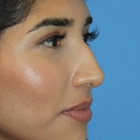
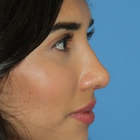
Full-side view
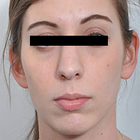
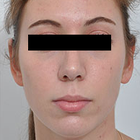
Front view
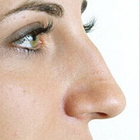
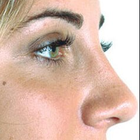
Full-side view
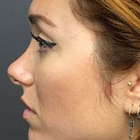
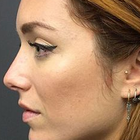
Full-side view
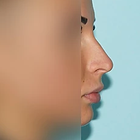
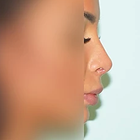
Full-side view
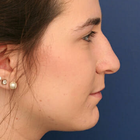
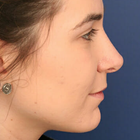
Full-side view
WHY US?
At Medijump, we're making medical easy. You can search, compare, discuss, and book your medical all in one place. We open the door to the best medical providers worldwide, saving you time and energy along the way, and it's all for FREE, no hidden fees, and no price markups guaranteed. So what are you waiting for?

Free

Best Price

Widest Selection

Risk-Free
What you need to know about Nose Surgery in Hungary
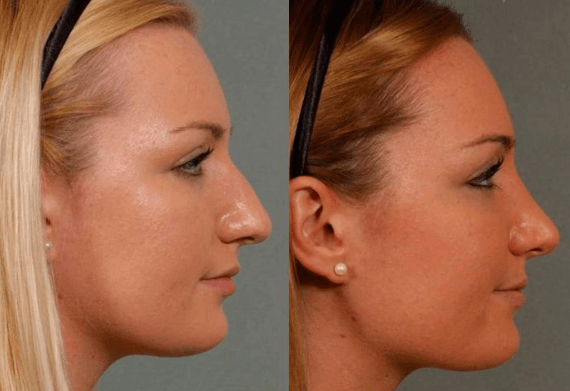
Commonly referred to as a Rhinoplasty, it is the medical term for reshaping of the nose or corrective surgery of the nose. It is one of the most common facial plastic surgeries (Facelift) procedures performed. Nose surgery can be performed to change the consequence of genetics, birth defect or nasal injury. It can be performed to enhance the appearance and/or to improve nasal breathing.
Surgery can be performed to correct nasal humps, the curvature of nose-bridge, nose tip irregularities, and asymmetry in the nostrils. The nasal appearance can be altered in various ways using intra-nasal chisels. Nose surgery procedures generally fall under three types: open rhinoplasty, closed rhinoplasty, and tip rhinoplasty. Rhinoplasty is normally performed under general anesthesia and will not leave any visible scars on the nose.
What does a Nose Surgery Procedure Involve?
Nose surgery is an individualized surgery. Before the surgery, you will need to discuss important factors with your surgeon to determine if it is suitable for you. Your surgeon will review your medical history, including your previous surgeries, medical conditions, and any medications you are taking. You will need to have a complete physical examination, such as blood tests. Your surgeon will also consider your other facial features, the skin on your nose, and what you would like to change or correct. Then, your surgeon will develop a customized plan for you. Two weeks before and after surgery, avoid any medications that contain aspirin or ibuprofen, such as Advil and Motrin IB because these medications can increase bleeding. You will need to also stop taking herbal remedies and over-the-counter supplements. If you are an active smoker, stop smoking because smoking can slow your healing process and increase the risk of getting an infection.
During the actual surgery, you will be given either local anesthesia or general anesthesia. The type of anesthesia depends on how complex the surgery is and what the surgeon would prefer to use. Then, the surgery will start by making incisions inside your nose or at the base of your nose between your nostrils. Your surgeon will reshape the inner bone and cartilage underneath your skin to make a more pleasing appearance.
There are several ways to change the shape of your nasal bones or cartilage, depending on your nose’s structure and how much needs to be removed or added. If only small changes are required, your surgeon may use cartilage taken from deeper inside your nose or your ear. However, for a much larger change, your surgeon may use cartilage from your rib, implants, or bone from other parts of your body. When the changes are finished, your surgeon will place the nose’s skin and tissue back. The incisions will be closed by stitches.
How Long Should I Stay in Hungary for a Nose Surgery Procedure?
If everything goes well, you can go back to your hotel on the same day once the effects of anesthesia wear off. However, you will need to stay in a recovery room for a few hours so the staff can monitor you. Some people may need to stay in hospital overnight. After you are discharged from the hospital, you will need to stay in Hungary for at least 10 to 14 days for initial recovery, follow-up checkups, and for the stitches to be removed.
What's the Recovery Time for Nose Surgery Procedures in Hungary?
The recovery period for nose surgery can be different from person to person. In general, 2 to 3 weeks is needed until you can get back to your full normal routine and 3 to 6 weeks until you can do any strenuous activity. However, you should be able to go back to work within a week, except if your job requires strenuous physical activity. You will feel gradually better each day in the first week. You will experience swelling, which can take six months to subside. The only people who will notice the swelling is you and your surgeon. Your final nose shape will be apparent after it is completely healed.
What sort of Aftercare is Required for Nose Surgery Procedures in Hungary?
After the surgery, you may need to wear a nasal splint for the first week. The splint is used to protect and support your nose. Your nose may be congested due to swelling or from the nasal splint. You need to rest in bed with your head raised higher than your chest to reduce bleeding and swelling. For a few days after the surgery, you may also experience slight bleeding and drainage of mucus. Your surgeon may place a “drip pad” under your nose to absorb drainage.
Your surgeon may ask you to avoid strenuous activity, take baths instead of showers, avoid blowing your nose, eat high-fiber foods to avoid constipation, not to do any facial expressions (smiling or laughing), not wearing pull clothing and wear button-downs instead.
For at least several weeks after the surgery, do not rest eyeglasses or sunglasses on your nose to prevent pressure. You should also wear SPF 30 sunscreen when you are outside because too much sun can cause permanent irregular discoloration to your nose. Do not put anything such as ice or cold packs on your nose even though it is swelling as the swelling will go away faster by limiting your dietary sodium.
What's the Success Rate of Nose Surgery Procedures in Hungary?
Nose surgery is known to have around 80% to 90% success rate. Nevertheless, just like any other surgery, it still has possible risks and complications. These risks are bleeding, infection, numbness, permanent nerve damage, and an adverse reaction to the anesthesia. You should call your surgeon immediately if you suspect any of the symptoms. Other possible risks are difficulty breathing through your nose, uneven-looking nose, persisting pain, swelling, and discoloration, scarring, septal perforation, and the need for a second or third surgery.
For an in-depth analysis of the closed rhinoplasty procedure with before and after images, watch this short video.
Are there Alternatives to Nose Surgery Procedures in Hungary?
If you do not want to undergo surgery, or if it is not suitable for you, you can get filler injections, such as Botox, Juvaderm, and Restylane. They can change the shape of your nose and only require a short visit to the doctor. This method is not painful and needs no incisions or stitches.
Whilst the information presented here has been accurately sourced and verified by a medical professional for its accuracy, it is still advised to consult with your doctor before pursuing a medical treatment at one of the listed medical providers
No Time?
Tell us what you're looking for and we'll reachout to the top clinics all at once
Enquire Now

Popular Procedures in Hungary
Prices Start From $404

Prices Start From $111

Prices Start From $70

Prices Start From $220

Prices Start From $1,945

Prices Start From $192

Prices Start From $500

Recommended Medical Centers in Hungary for Nose Surgery

- Interpreter services
- Translation service
- Religious facilities
- Medical records transfer
- Medical travel insurance
- Health insurance coordination
- TV in the room
- Safe in the room
- Phone in the room
- Private rooms for patients available

- Interpreter services
- Translation service
- Religious facilities
- Medical records transfer
- Medical travel insurance
- Health insurance coordination
- TV in the room
- Safe in the room
- Phone in the room
- Private rooms for patients available

- Interpreter services
- Translation service
- Religious facilities
- Medical records transfer
- Medical travel insurance
- Health insurance coordination
- TV in the room
- Safe in the room
- Phone in the room
- Private rooms for patients available

- Interpreter services
- Translation service
- Religious facilities
- Medical records transfer
- Medical travel insurance
- Health insurance coordination
- TV in the room
- Safe in the room
- Phone in the room
- Private rooms for patients available

- Interpreter services
- Translation service
- Religious facilities
- Medical records transfer
- Medical travel insurance
- Health insurance coordination
- TV in the room
- Safe in the room
- Phone in the room
- Private rooms for patients available

- Interpreter services
- Translation service
- Religious facilities
- Medical records transfer
- Medical travel insurance
- Health insurance coordination
- TV in the room
- Safe in the room
- Phone in the room
- Private rooms for patients available

- Interpreter services
- Translation service
- Religious facilities
- Medical records transfer
- Medical travel insurance
- Health insurance coordination
- TV in the room
- Safe in the room
- Phone in the room
- Private rooms for patients available

- Interpreter services
- Translation service
- Religious facilities
- Medical records transfer
- Medical travel insurance
- Health insurance coordination
- TV in the room
- Safe in the room
- Phone in the room
- Private rooms for patients available

- Interpreter services
- Translation service
- Religious facilities
- Medical records transfer
- Medical travel insurance
- Health insurance coordination
- TV in the room
- Safe in the room
- Phone in the room
- Private rooms for patients available

- Interpreter services
- Translation service
- Religious facilities
- Medical records transfer
- Medical travel insurance
- Health insurance coordination
- TV in the room
- Safe in the room
- Phone in the room
- Private rooms for patients available
Nose Surgery in and around Hungary
About Hungary
Positioned in the core of Central Europe and completely surrounded by land, this historically enriched nation is among the world's top 15 tourist favorites. It's a hotspot teeming with UNESCO World Heritage sites, a testament to its rich past.
The country boasts eye-catching architectural marvels and relaxing thermal baths and spas, the most talked-about amongst these being the Szechenyi baths nestled in the nation's capital, Budapest. This combination of cultural heritage and relaxation opportunities lends the country a unique charm that continually lures in visitors from around the globe.
While Hungary possesses only one facility accredited by the Joint Commission International, it leans on the trusted expertise of its local accreditation board. This board, licensed by pillars of authority such as the Hungarian Ministry of Health and the State National Health Commission and Medical Service, ensures the maintenance of high healthcare standards.
Each year sees a burgeoning number of medical tourists making the journey to Hungary. Many among them travel specifically for Nose Surgery procedures. Dental and cosmetic treatments, in particular, draw significant attention due to Hungary’s competitive pricing, often regarded as the most economical across Europe.
Popular Parts of Hungary
With less than 10 million inhabitants sprinkled across an approximate area of 93,030 square kilometers, Hungary may appear relatively modest in size. However, within its boundaries, it hosts an impressive number of UNESCO World Heritage Sites. Alongside these acclaimed landmarks, it also boasts a multitude of exquisite attractions, making it a country that belies its physical size with its magnificently rich offerings.
- Budapest is the capital of Hungary. From beautiful boulevards, extraordinary architectures, an abundance of hot springs, to sophisticated food and an electric nightlife. Budapest has everything to satisfy everyone. Castle Hill is one of the most visited places in Budapest with beautiful buildings dating back to the 14th and 15th centuries.
- Eger is known for its castle, historic buildings, and thermal baths and also for its red wine. There are many festivals and celebrations centered around wine and remember to enjoy the wine-tasting when visiting Eger.
- Debrecen is an important city in Hungarian Protestantism. The city has many religious sites and museums. Tourists should visit the Great Church, St. Anne Cathedral, and the Deri Museum. Debrecen also has a lot of bars and nightclubs.
- Siofok is located at the southern coast of Lake Balaton. The small town also has beautiful beaches, making it one of the most popular summer holiday destinations. The town has many entertainment options, tourists can spend a lovely day on the beach next to Lake Balaton or enjoy the food in beachside bars and restaurants.
- Szeged is known as ‘The City of Sunshine’ because it has wonderful weather. The city offers beautiful parks, cultural scenes, and amazing street side cafes. Szeged has a youthful vibe as it is a university town. In the summer, there are many festivals such as the Open Air Theater festival.
Weather and Climate in Hungary
Hungary is characterized by the presence of four clearly demarcated seasons.
- Hungarian summers, spanning from June to August, are typically warm and agreeable, with average temperatures oscillating between 23 to 28°C (73 – 82°F). However, mercury levels can sometimes soar as high as 35°C (95°F). Tourists are advised to opt for lightweight clothing during this period. This season generally sees a tourism surge in Hungary.
- Both spring and autumn showcase milder, comfortable temperatures. Spring, in particular, is a splendid time to visit Hungary as the country's parks and fields burst into vibrant, full bloom.
- Winter presents a stark contrast with severely cold conditions. Average temperatures fall within -3 to -7°C (27 to 19°F), and can plummet to lows of -10°C (14°F). While rural areas may not be very visitor-friendly during this time, the more prominent cities continue to offer an enjoyable experience despite the cold.
Getting Around in Hungary
Hungary has five large airports, but international flights usually land at Ferenc Liszt International Airport. The airport is still commonly called “Ferihegy.” It offers international connections mainly to Europe, Africa, the Middle East, and North America. Several budget airlines such as Wizz Air, EasyJet, and Ryanair operate many flights from this airport. Flights to/from Schengen countries use Terminal 2A (also known as the Schengen terminal), while flights from non-Schengen countries use Terminal 2B. Another year-round international airport is Debrecen International Airport. The airport serves Wizz Air and Lufthansa along with several seasonal airlines. There aren’t many domestic flights in Hungary because traveling to one city to another usually only takes three hours by train or bus.
Visitors can get into the city from the airports by bus or taxi. If you wish to travel by taxi, make sure to use regulated taxis such as Főtaxi, the company has trained and experienced drivers to ensure passengers’ safety. The fare is 300 HUF/Km (1.03 USD). A ride to Budapest from Ferenc Liszt International Airport should cost around 7200 HUF (24.8 USD).
Buses are another easy option to get to the city center. Bus tickets are relatively cheap, single tickets are 350 HUF (1.30 USD) and can be purchased at the airport post office, BKK customer points in arrivals halls, the newsagents, and from the ticket machine at the bus stops. Drivers also sell tickets for 450 HUF (1.60 USD). It is recommended to buy daily or multi-day travel-cards and passes which are valid for an unlimited number of trips within their validity periods. The multi-day pass costs 1650 HUF (6.15 USD)
Hungary has a highly developed transport system. To travel to another city, tourists can use Intercity (IC), the fastest trains that link major cities with Budapest. Buses are a more economical way to travel inter-city. Buses are efficient. Tickets can be purchased from the bus driver. Taxis are good, but make sure to always inspect the change that taxi drivers give you. Drivers commonly give tourists outdated Romanian currency that looks similar to Hungarian currency but has no value. Hiring a car is another good option if you want to travel to many destinations, most roads are two lanes and the main roads are in good shape.
Tourist Visas in Hungary
European Union, American, and Canadian passport holders can stay in Hungary without a visa for up to 90 days, as long as the passport is valid for at least three months. Citizens of EU/EEA member and 33 countries are granted visa-free entry for a maximum period of 90 days.
Hungary is also a part of the Schengen Agreement. The Schengen Visa allows the holder to travel to any member countries using one single visa. The Schengen Visa is only issued to citizens of countries who are required to obtain a visa before entering Europe. For more information:
- Visitors to Hungary must have a valid passport and proof of onward travel.
- It is recommended to have travel insurance, as it is not required by law but can be very helpful in case of an emergency.
- Visitors to Hungary should be aware of the country's currency, the Hungarian forint (HUF). The exchange rate for the Hungarian forint fluctuates daily, but it is currently trading at around 350 HUF to the US dollar.
- Most businesses and establishments in Hungary accept credit cards and debit cards. However, it is always a good idea to have some cash on hand, especially for smaller purchases and for tipping.
Additional Information
- Local Currency: Although the Hungarian government wants to use the Euro as Hungary’s currency, the official currency is still Hungarian Forint (HUF). 1 USD is equivalent to 362.80 HUF.
- Money & Payments: ATMs are easily available within the country. Hotels, shops, and restaurants accept credit cards, especially, MasterCard, Visa, and American Express. Several taxis in Budapest also accept credit cards. Many hotels and guesthouses that give their rates in euros will accept payment with euros or forint. Tipping is not mandatory but will be appreciated.
- Local Language: The official language is Hungarian. English is widely taught in schools and universities, so many young people can speak very good English. German is almost as widely spoken as English.
- Local Culture and Religion: More than half of the population follows Christianity as it is a historically Christian country. Jewish, Buddhist, and Muslim are freely practiced and are in the minority.
- Public Holidays: Hungary celebrates Christian holy days. The country hosts many annual festivals such as Hollókő Easter Festival, Busójárás, and Balaton Festival. Note that on national and public holidays, most businesses including shops and restaurants are closed. Public transportations also run less frequently.
With its stunning landscapes, laden with history and soaked in culture, Hungary truly is a gem to behold. Brimming with a myriad of delights to cater to diverse preferences, it offers everything from captivating landscapes and historical marvels to lively metropolises teeming with life, and a wealth of culinary delights. Indeed, Hungary ensures every visitor takes away an indelible wealth of wonderful memories.
Popular Searches
- Plastic Surgery in Thailand
- Dental Implants in Thailand
- Hair Transplant in Thailand
- Breast Augmentation Thailand
- Gastric Sleeve in Thailand
- Gender Reassignment Surgery in Thailand
- Laser Hair Removal in Bangkok
- Botox in Bangkok
- Dermatology in Bangkok
- Breast Augmentation in Bangkok
- Coolsculpting in Bangkok
- Veneers in Turkey
- Hair Transplant in Turkey
- Rhinoplasty in Turkey
- Stem Cell Therapy in Mexico
- Rhinoplasty in Mexico
- Liposuction in Mexico
- Coolsculpting in Tijuana
- Rhinoplasty in Korea
- Scar Removal in Korea
- Gastric Sleeve in Turkey
- Bone Marrow Transplant in India
- Invisalign in Malaysia
- Plastic Surgery in the Dominican Republic
- Tummy Tuck in the Dominican Republic
- Plastic and Cosmetic Surgery in Poland
- Rhinoplasty in Poland
- Hair Implant in Poland
- Dental Implants in Poland
- IVF in Turkey













